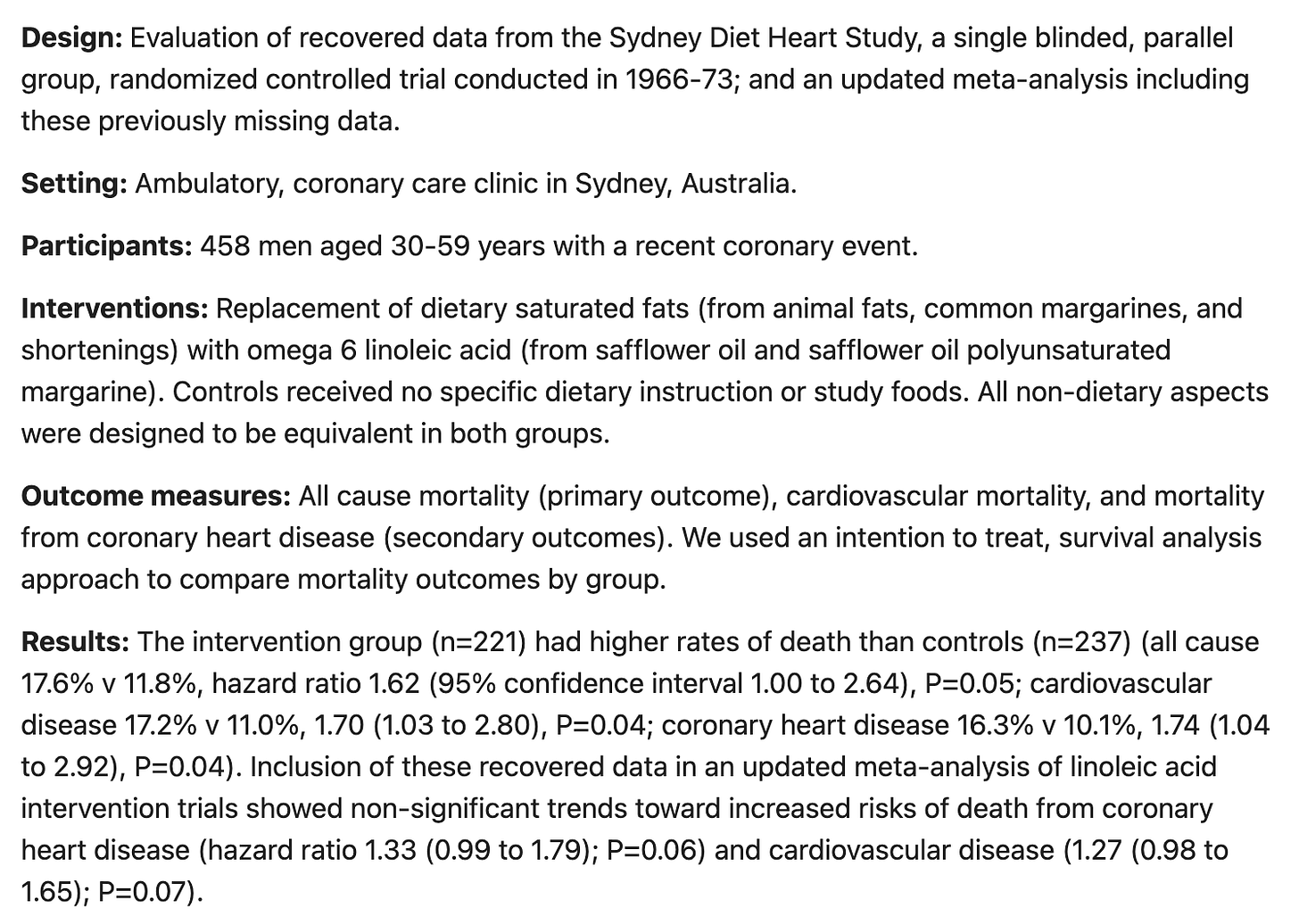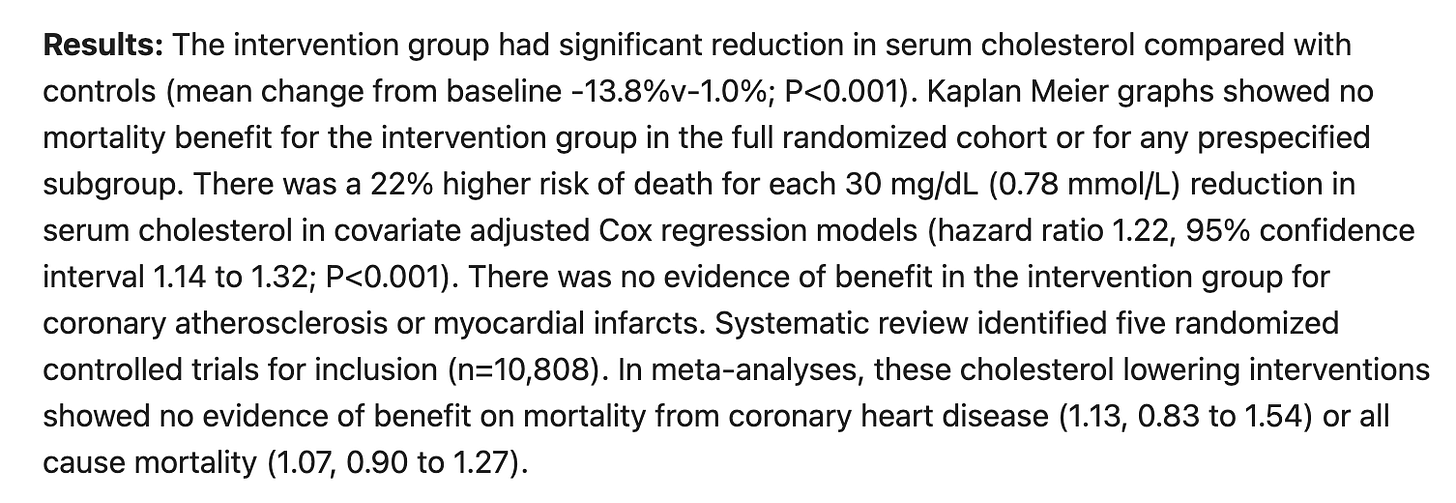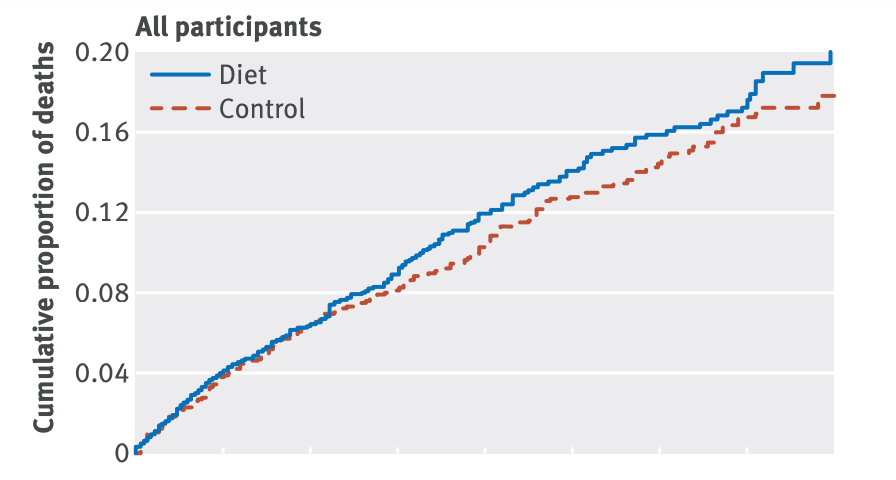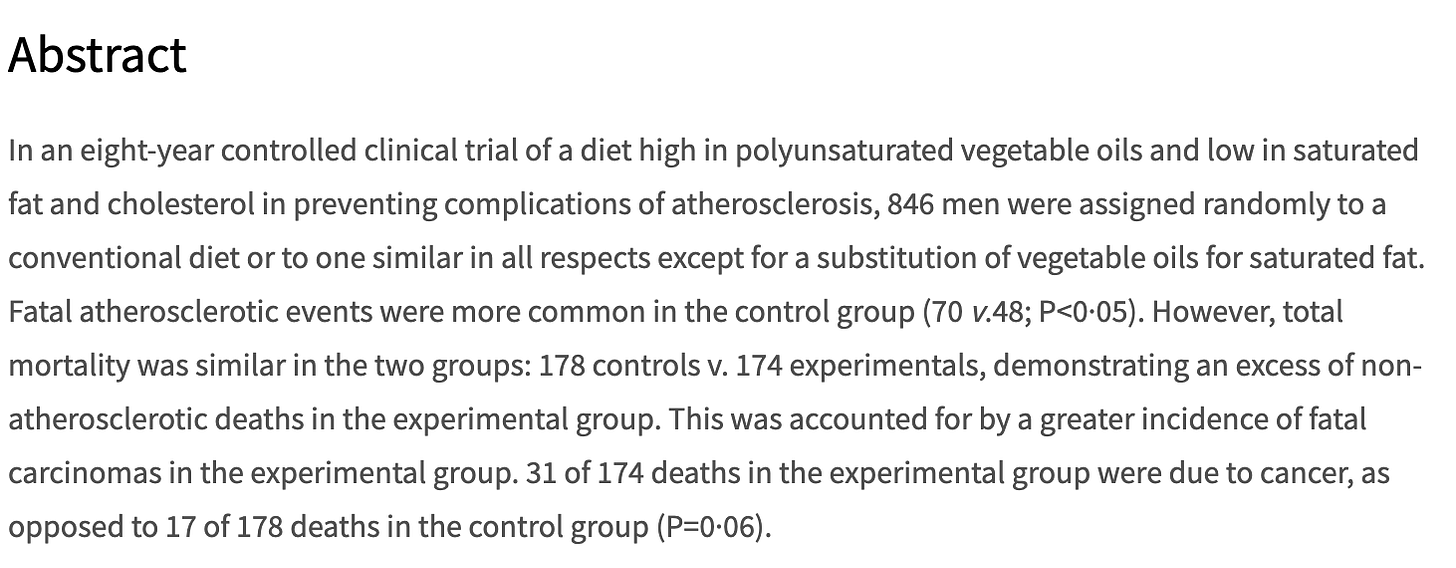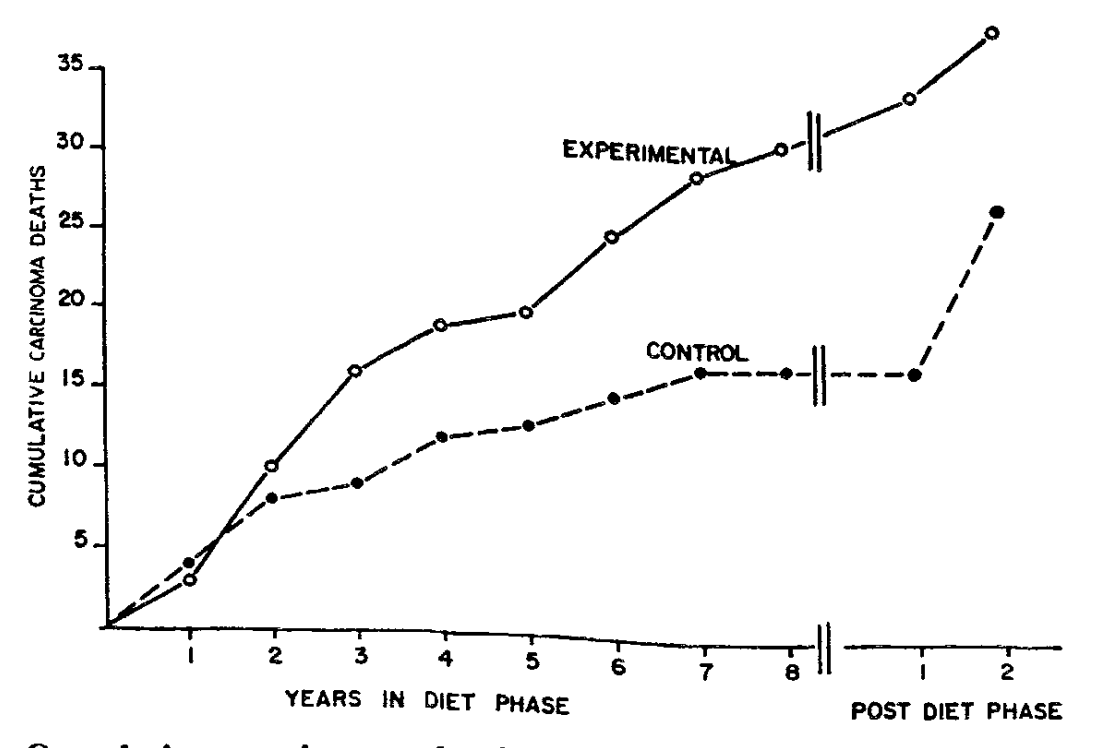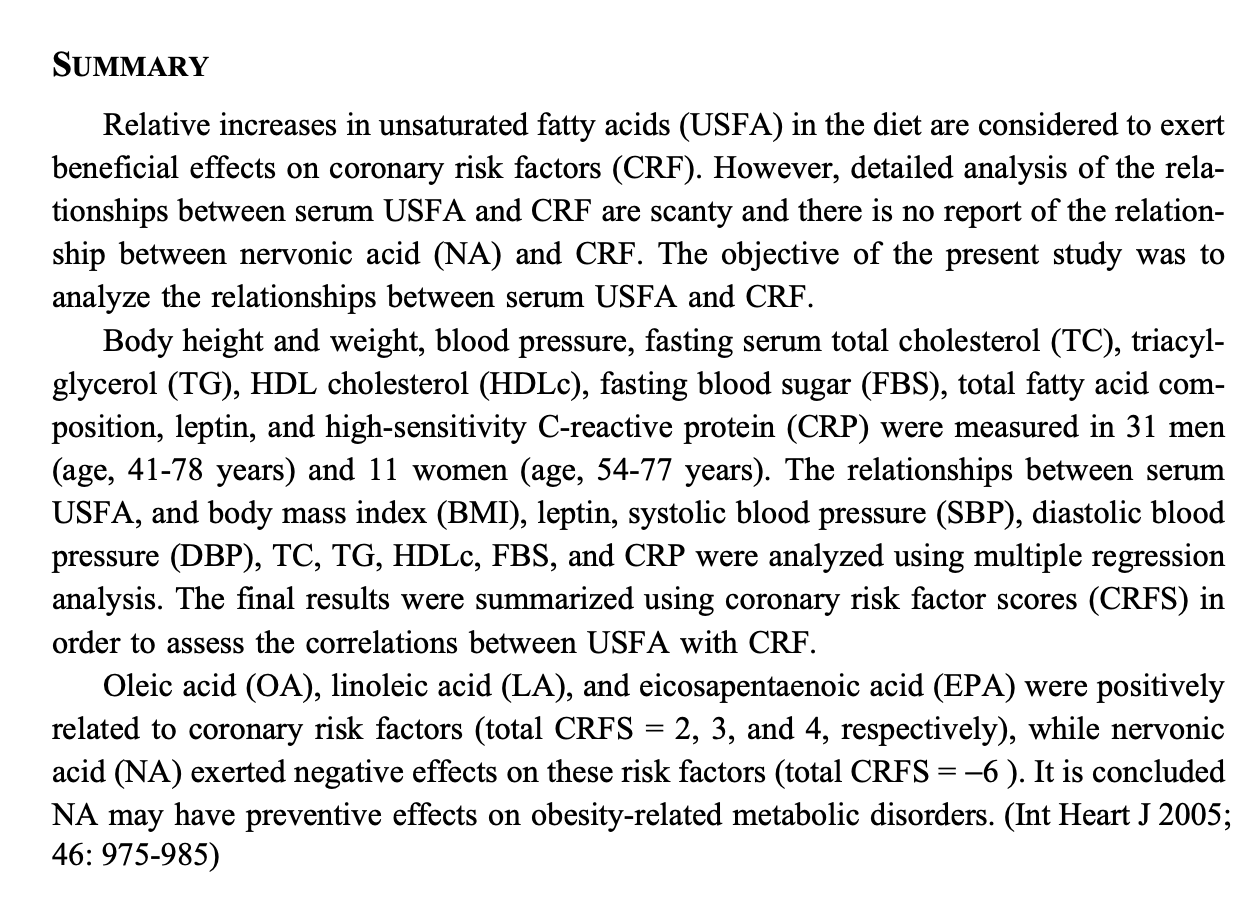It takes virtually all of my self control to keep this post short enough to remain readable. Someday, someone will write an encyclopedia that comprehensively catalogs all of the arguments about whether seed oils are good for you or bad for you. There have been 60,000-word apologias of seed oils and their attendant 10,000-word hermeneutic rebuttals. There have been books (1,2), articles (1,2,3), and viral YouTube lectures (1,2). As much as I would like to, I can’t do that right now.
Instead, I will try to present a very short argument for why they’re suspect. At least suspect enough to avoid them whenever possible. And evoke the use of the precautionary principle, which states that:
if there is a possible risk of harm to people, precautionary measures should be taken even if there is no scientific consensus.
To limit the scope of evidence, I will only present high quality, randomized studies with human subjects.
Sydney Diet Heart Study
PMID: 23386268
Cohort: 458 men aged 30-59 years with a recent coronary event.
Results: Group instructed to eat seed oils had a 60% higher all-cause mortality rate.
Minnesota Coronary Experiment
PMID: 27071971
Cohort: 9423 women and men aged 20-97
Result: Found that seed oils lowered serum cholesterol, and that low cholesterol was associated with higher mortality rate. The seed oil group also had a higher mortality rate overall.
LA Veterans Hospital
PMID: 4100347
Cohort: 846 veterans
Result: Higher rates of cancer among high seed oil diet group, in spite of this group having 50% fewer heavy smokers. "There is no apparent non-dietary explanation for the higher frequency of carcinoma deaths."
Oda 2005
PMID: 16394593
Result: Found that tissue concentration of unsaturated fatty acids increased risk factors for coronary heart disease.
None of this evidence conclusively proves seed oils are bad for you. But if you’re not ideologically committed to the opposite conclusion, it should probably be reason enough to avoid them.





